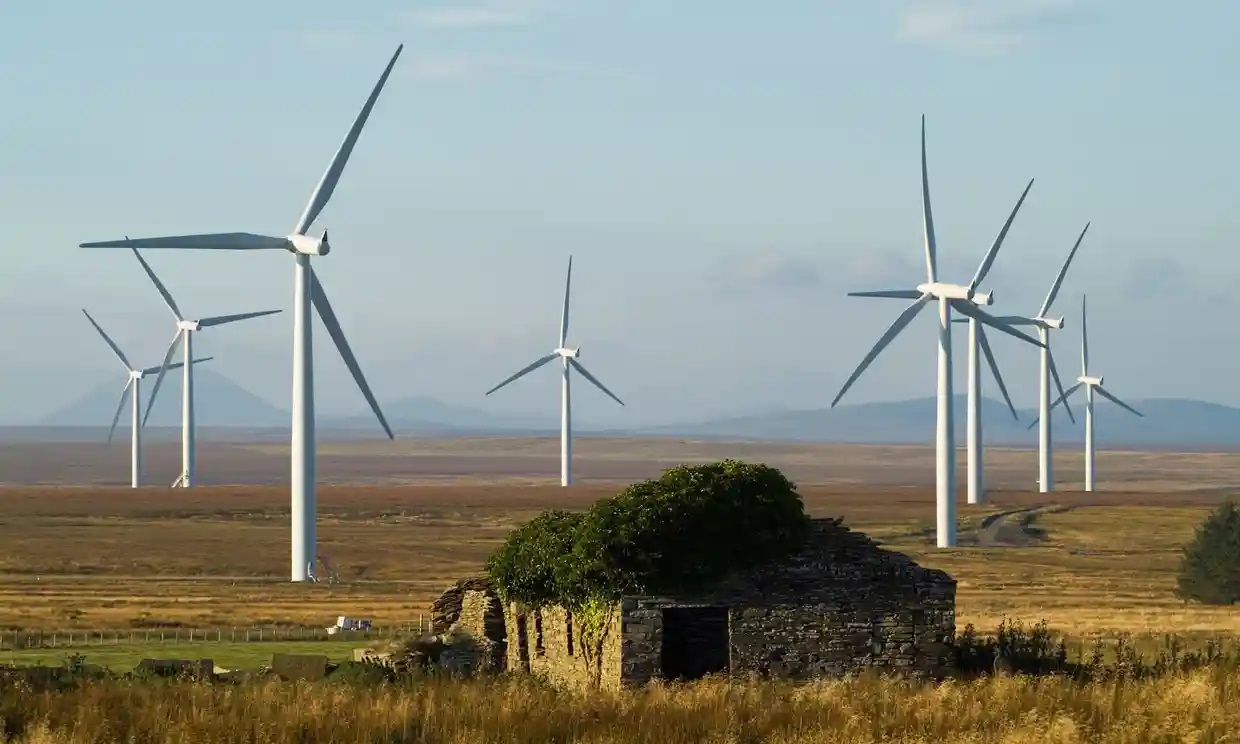More than 100 companies are set to send a letter to the PM voicing fears about the disastrous effects of Britain’s overreliance on gas.
More than 100 of the UK’s biggest energy companies will tell Rishi Sunak this week not to back off the green agenda after a report by the Office for Budget Responsibility (OBR) warned of catastrophic effects on the economy of continued overreliance on gas.
The energy sector is becoming so alarmed at what it sees as the Sunak government’s mixed messages on switching to more renewable energy that big UK companies are ready to go public with a letter to Downing Street within days.
Among their main fears are that investment in green industries will go abroad, to the EU and the US, and that the Tory party now appears more interested in using climate issues to promote a culture war with Labour than it is in tacking the climate emergency and seizing the economic opportunities it presents.
On Saturday night, two of the most prominent “green” Tories – former ministers Alok Sharma and Chris Skidmore – said the OBR’s findings showed that failure to embrace fully the net zero agenda would not only lead to an environmental crisis, but also severe economic consequences for the UK.
Speaking to the Observer, Sharma, the former president of Cop26, said it was time for the government to stop dithering and reform planning rules to allow more onshore windfarms. “The OBR report reinforces the economic case to move much faster on deployment of renewables in our energy system, which will ultimately help to bring down household energy bills and protect us from future fossil fuel price shocks,” Sharma said.
“One quick win to unlock green energy investment would be for the government to stop prevaricating and reform the planning system now to allow for more onshore wind to be built, which is one of the cheapest forms of energy available.”
In its latest report on fiscal risks to the economy, the OBR said the UK remained one of the “most gas-dependent economies in Europe”. It added that about £327bn of investment would be needed to reach the target of net zero by 2050, but noted that the government had so far only committed the equivalent of £22.5bn.
Richard Hughes, the OBR’s chairman said: “This has left us particularly exposed to changes in wholesale gas prices and has already brought with it considerable fiscal cost.”
The report said that if the UK failed to reduce its reliance on expensive gas “these shocks could cost the exchequer between 2% and 3% of GDP per year. Taking account of additional debt interest costs and the impact on economic activity, such recurring gas price spikes would add about 13% of GDP to public debt by 2050-51. This is about twice as much as the 6% of GDP central estimate for the total cost of public investment to complete the transition to net zero by the middle of the century.”
It added: “Until the UK reduces its dependence on gas, the country is likely to remain heavily reliant on gas imports from abroad, given declining North Sea reserves. In the event of further gas price spikes similar to the scenario covered at the end of this chapter, the UK, as a large net importer of gas, would see further significant negative terms of trade shocks in the future. Households reliant on gas for both heating and electricity would be among the worst affected.”
Read the complete article by clicking below:
